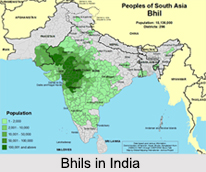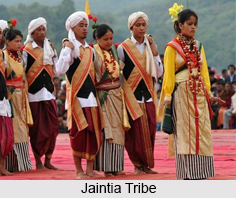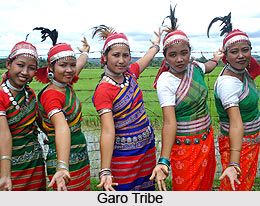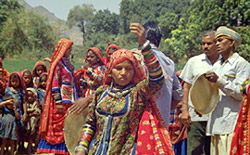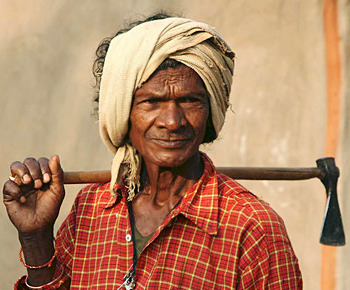 Bhatra tribe is a primitive tribe mainly found in the central region of the country. They are very similar to Gond tribe and are largely settled in Bastar district and the southern part of Raipur District. Regarding the origin of Bhatra tribe, not much is known except a legend that states that they came with the Rajas of Bastar from Warangal several generations ago. The term Bhatra literally means a servant. Mostly, Bhatra tribes are employed as village watchmen and domestic servants. Bhatra tribe has three divisions, namely the Pit, Amnait and San Bhatras, the Pit sub-division being the highest. Members of these three divisions will eat with each other before marriage. Further, the Bhatra tribe also has the usual set of exogamous clans that are named after animals and plants. It is said, that formerly, people belonging to these septs were tattooed with representations of the totem animal and plant. These Bhatra tribes have their indigenous customs and they follow it religiously.
Bhatra tribe is a primitive tribe mainly found in the central region of the country. They are very similar to Gond tribe and are largely settled in Bastar district and the southern part of Raipur District. Regarding the origin of Bhatra tribe, not much is known except a legend that states that they came with the Rajas of Bastar from Warangal several generations ago. The term Bhatra literally means a servant. Mostly, Bhatra tribes are employed as village watchmen and domestic servants. Bhatra tribe has three divisions, namely the Pit, Amnait and San Bhatras, the Pit sub-division being the highest. Members of these three divisions will eat with each other before marriage. Further, the Bhatra tribe also has the usual set of exogamous clans that are named after animals and plants. It is said, that formerly, people belonging to these septs were tattooed with representations of the totem animal and plant. These Bhatra tribes have their indigenous customs and they follow it religiously.
In Bhatra community, outsiders are generally not admitted. But if a woman of equal status enters the house of any man, she will be recognised as his wife. A man of other caste can also become a member of Bhatra community if he lives with a woman of the community and shares food from her hand. In Bhatra society girls get married before attaining puberty. And if an appropriate groom cannot be found for her then they tie some flowers into her cloth and regard this as a marriage ceremony. Match making is usually arranged by the parents. If no proposal comes for a girl then she is free to select a husband for herself. However, in this case she is provisionally put out of caste until the chosen bridegroom indicates his consent by giving marriage feast. The auspicious date of the wedding is fixed by an official, who is known as Meda Gantia. He is a village astrologer. He also suggests favourable dates for sowing and harvest
Bhatra tribal people worship the god of hunting known as Mati Deo. The Bhatra tribal people also work as cultivators and farm servants, they mainly practise shifting cultivation. They also work as village watchmen or village priest.


















